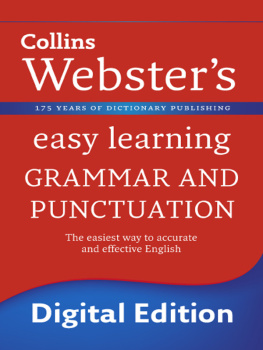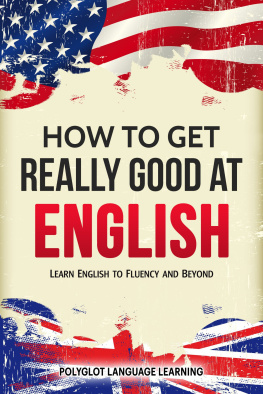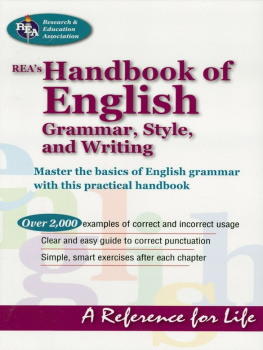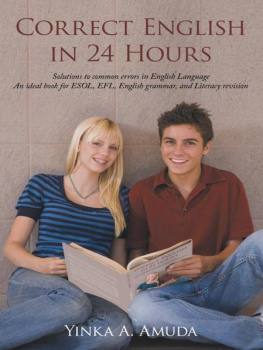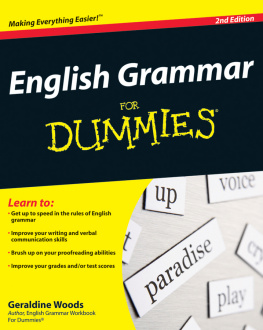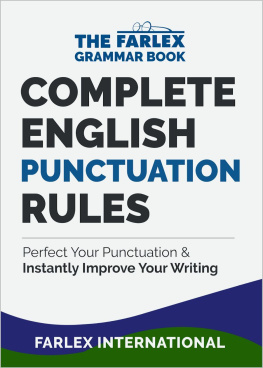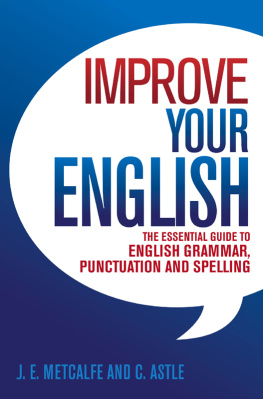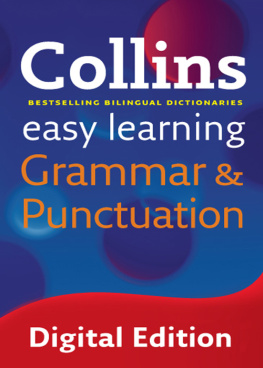The Project Gutenberg eBook, "Stops", by Paul Allardyce
This eBook is for the use of anyone anywhere at no cost and with
almost no restrictions whatsoever. You may copy it, give it away or
re-use it under the terms of the Project Gutenberg License included
with this eBook or online at www.gutenberg.org
Title: "Stops"
Or How to Punctuate. A Practical Handbook for Writers and Students
Author: Paul Allardyce
Release Date: March 29, 2007 [eBook #20938]
Language: English
Character set encoding: ISO-8859-1
***START OF THE PROJECT GUTENBERG EBOOK "STOPS"***
E-text prepared by Chris Curnow, Sankar Viswanathan,
and the Project Gutenberg Online Distributed Proofreading Team
(http://www.pgdp.net)
STOPS
OR, HOW TO PUNCTUATE
A PRACTICAL HANDBOOK
FOR WRITERS AND STUDENTS
By PAUL ALLARDYCE
For a reader that pointeth ill,
A good sentence oft may spill.
Chaucer Romaunt of the Rose
LONDON
T. FISHER UNWIN LTD.
ADELPHI TERRACE
Eighteenth Impression
1895
CONTENTS
| PAGE |
| INTRODUCTION |
| THE FULL STOP |
| THE COMMA |
| THE SEMICOLON |
| THE COLON |
| THE POINT OF INTERROGATION |
| THE MARK OF EXCLAMATION |
| THE DASH |
| BRACKETS (OR THE PARENTHESIS) |
| INVERTED COMMAS |
| ITALICS |
| THE HYPHEN |
| THE APOSTROPHE |
| ELLIPSIS |
| REFERENCES TO NOTES |
| CORRECTION OF PROOFS |
INTRODUCTION
The Use of Punctuation.Punctuation is a device for marking out the arrangement of a writer's ideas. Reading is thereby made easier than it otherwise would be.
A writer's ideas are expressed by a number of words arranged in groups, the words in one group being more closely connected with one another than they are with those in the next group. An example will show this grouping in its simplest form:
He never convinces the reason , or fills the imagination , or touches the heart.
To understand what is written, the reader must group the words together in the way intended by the writer; and in doing this he can receive assistance in various ways. Partly by the inflection of the words; partly by their arrangement; partly also by punctuation. As to inflection, we see in Latin an adjective and a substantive standing together, yet differing in gender, in number, or in case; and we know that the adjective does not qualify the substantive. But English has not the numerous inflections of Latin. More scrupulous care therefore is needed in the arrangement of words in order to bring together in position such as are connected in meaning. Yet this is not always enough. Except in the very simplest sentences there are generally several arrangements which are grammatically possible; and, though all save one may be absurd in meaning, the reader may waver for a moment before the absurdity strikes him. Some artificial aid is thus needed to prevent him from thinking of any arrangement but the right one. There is no fault, for instance, to be found with the arrangement of the following words, yet, printed without points, they form a mere puzzle:
He had arrived already prepossessed with a strong feeling of the neglect which he had experienced from the Whigs his old friends however all of them appeared ravished to see him offered apologies for the mode in which they had treated him and caught at him as at a twig when they were drowning the influence of his talents they understood and were willing to see it thrown into the opposite scale.
Of course, with a little effort the meaning can be discovered; but if such a little effort had to be put forth in every page of a whole book, reading would become a serious task. By means of points, or "stops," we are spared much of this. The groups are presented ready-made to the eye; and the mind, bent on understanding the thought, is not distracted by having first to discover the connection of the words.
The reader's task is more difficult where two or more ways of grouping the words not only are grammatically possible, but lead each to a more or less intelligible meaning. As a rule he can find out from the context which way the writer meant him to take. One politician writes to another: "I ask you as the recognized leader of our party what you think of this measure;" and nobody accuses the writer of presumption. We might even pass over the following startling sentence without observing the reflection which it casts on a respectable body of men:
Hence he considered marriage with a modern political economist as dangerous.
But when we read that "the State may impose restrictions on the mothers of young children employed in factories," we may well have some doubt whether it is the mothers or the children who are employed in factories. And it would not be easy to give an answer, if we were asked to state the precise meaning of Gray's line:
And all the air a solemn stillness holds.
In longer and more involved sentences the risk of ambiguity is obviously much greater. Now by the judicious use of points ambiguous language can occasionally be made clear. "The mothers-of-young-children employed in factories" is no doubt a bold form, but it leaves us in no doubt as to the meaning. So the ambiguous word "too" does not embarrass us when we read: "This problem, too, easy as it may seem, remains unsolved." (See other examples under Rules XIV. and XV.) Only occasionally, however, can clearness be secured by punctuation. No pointing can help us much in Gray's line, or could have given to Pyrrhus the true reading of "Credo te acida Romanos vincere posse." And, even where it would make the meaning clear, it is a lazy device, the over-use of which is the sure sign of careless or unskilful composition. The true remedy for ambiguity is not punctuation, but re-writing.
Punctuation, it is sometimes said, serves to mark the pauses that would be made in speaking. This is so far true; for by the pause we arrange our spoken words into proper groups, thereby enabling our hearers readily to seize the meaning. But between the punctuation of the pen and that of the voice there is a great difference in degree. By the voice we can express the most delicate shades of thought, while only in the roughest way can the comma, the semicolon, and the other points, imitate its effects. As to how far the attempt at imitation should be carried, every writer will have to use his own discretion; but, whether we point freely or sparingly, we must for the reader's sake point consistently. It should at the same time be borne in mind that the lavish use of points often leads to confusion.
General Rules.Keeping in view the use of punctuation, we can now form two general rules to guide us when we are in doubt which point we should insert, or whether we should insert a point at all.
(1) The point that will keep the passage most free from ambiguity, or make it easiest to read, is the right point to use.
(2) If the passage be perfectly free from ambiguity and be not less easy to understand without any point, let no point be used.
The Relativity of Points.In order to decide in any given case what point ought to be used, we begin by considering the nature of the pause in itself. But we must do more. We must consider how we have pointed the rest of the passage. The pause that should be marked by a comma in one case, may require a semicolon in another case; the colon may take the place that the semicolon would generally fill. This will be best understood by means of the examples that will afterwards be given. (See Rules XXIII., XXV.)



